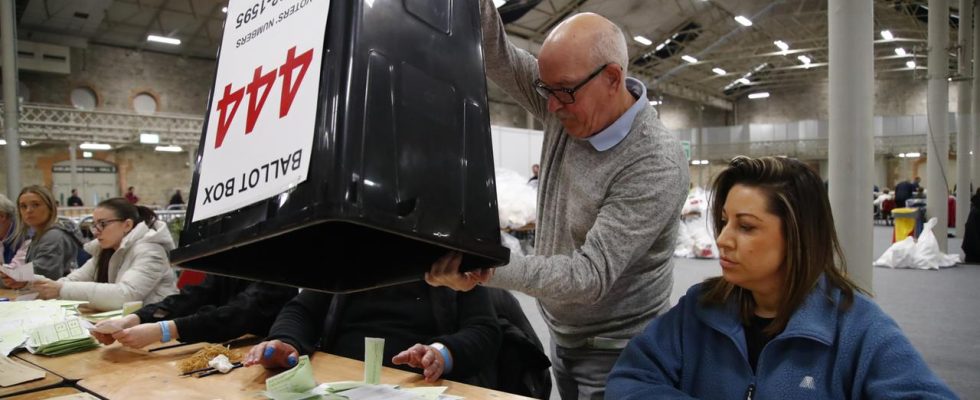Irish voters have rejected constitutional changes on marriage and the role of women. This continues to talk about the woman’s “domestic life”. The relevant article is more than 80 years old.
The referendums on rewriting constitutional articles on marriage and the role of women in the family in Ireland have failed. The attempt to replace two constitutional articles with “very old-fashioned language” and to recognize the realities of modern family life was rejected by a large majority, Prime Minister Leo Varadkar admitted.
“It was our responsibility to convince the majority of people to vote yes and we clearly failed to do that,” he said. His government will “accept and fully respect the result.”
Constitution from 1937
This means that Article 41 of the Irish Constitution, which dates back to 1937, remains unchanged for the time being. This means that the role of women will not be redefined for the time being.
The constitution still speaks of the “domestic life” of women, who are assigned responsibility for care – i.e. raising children, looking after and caring for women. It also means that mothers should not be forced to work for financial reasons and thereby neglect their domestic duties. New wording should state that the state strives to “support the mutual care of family members.”
Criticism of vagueness of wording
All major political parties in Ireland had supported the proposed changes. The leader of the opposition Labor Party, Ivana Bacik, now blamed the government: It was a disappointing result, but the responsibility for it lies with the government. “Firstly, they have to explain why they chose these formulations in the referendums,” she said. “And secondly: Why she didn’t start a more energetic campaign to sell this choice of words to the population.”
In fact, there was much debate about certain formulations – such as that of “lasting relationships”. The reform proposal also stipulated that in the future not only marriage would be recognized as the basis for the family, but also “long-lasting relationships”. However, criticism arose about the vagueness of the term. Many were sure that courts would ultimately have to decide what this meant.
Big differences voter turnout
A constitutional change in Ireland is only possible by referendum. In the predominantly Catholic country, a two-thirds majority voted to legalize abortion in a referendum in 2018. In 2015, the Irish voted to introduce marriage for same-sex couples.
According to public broadcaster RTE, voter turnout varied greatly when polling stations closed on Friday evening. In some regions it was 50 percent, in others it was less than 30 percent.
Imke Köhler, ARD London, tagesschau, March 9, 2024 7:00 p.m
With information from Imke Köhler, ARD London

